Is there a culture in this world created by women, for women, and belongs solely to them? As we pondered this question, Nüshu(女书) emerged in our research—a script unlike any other, the only known writing system in history designed and used exclusively by women. Yet, it stands on the brink of extinction. For centuries, women in Jiangyong County, Hunan Province, were excluded from formal education and denied literacy in the dominant Chinese script. In response, they created Nüshu—a secret language of solidarity, resilience, and self-expression. Written in delicate, rhomboidal characters on paper, textiles, and embroidery, Nüshu allowed women to document their stories, communicate in private, and carve out a space of intellectual and emotional freedom in a world that often silenced them. It was a quiet defiance against the prevailing power structures. When we asked those around us if they had ever heard of Nüshu, the answer was almost always no. This realization made our mission clear: to make Nüshu visible once more. In this project, we created personalized name cards inscribed in Nüshu for our classmates and professors in the Becoming Visible course. A name is one’s second face—a symbol of identity. Offering a name card, introducing oneself, and writing one’s name are all acts of becoming visible. Through this process, we hope to bring Nüshu back into the light, to give voice to a culture crafted by women, and to ensure that it is seen, remembered, and celebrated.
What is Nüshu?
Nüshu, also known as Women's Script, is the only writing system in the world created and used exclusively by women. Nüshu is a phonetic script read right to left that represents an amalgamation of four local dialects spoken across rural Jiangyong County, located in southern China. Some experts believe the female-only language dates to the Song Dynasty (960-1279) or even the Shang Dynasty more than 3,000 years ago.
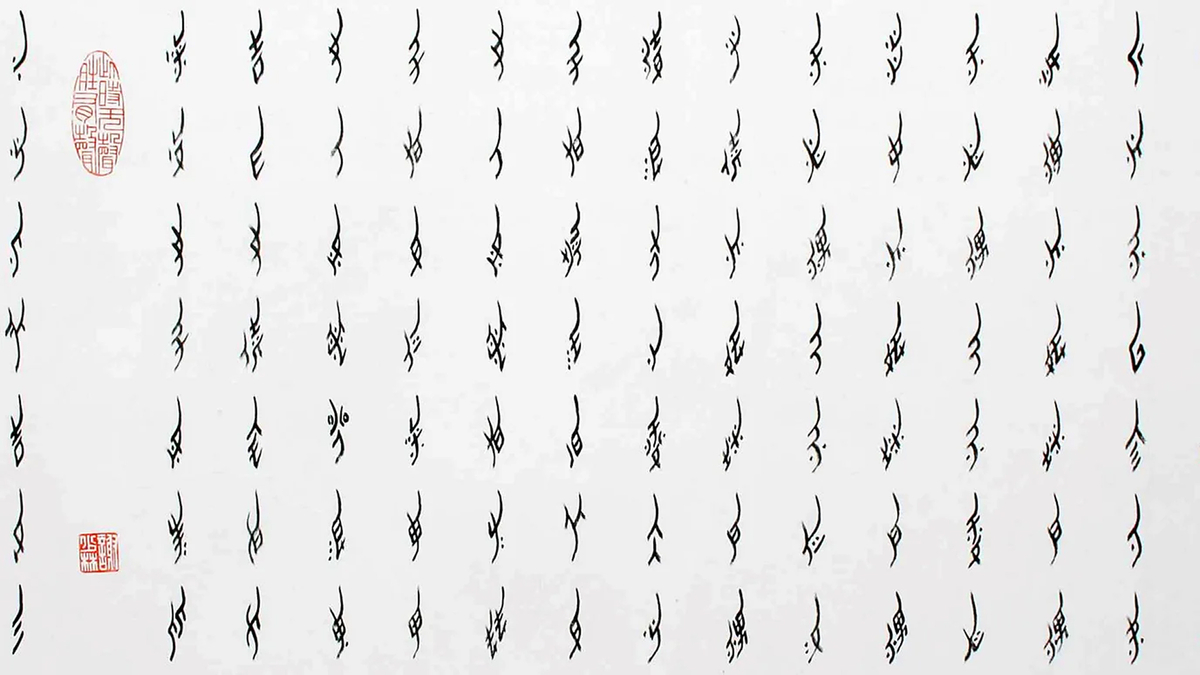 Image from Lofthouse, Andrew. “Nüshu: China’s Secret Female-Only Language.” BBC News, February 25, 2022. https://www.bbc.com/travel/article/20200930-nshu-chinas-secret-female-only-language.
Image from Lofthouse, Andrew. “Nüshu: China’s Secret Female-Only Language.” BBC News, February 25, 2022. https://www.bbc.com/travel/article/20200930-nshu-chinas-secret-female-only-language.
less
History
1954
Zhou Shuo Yi from the county cultural center visited Hu Chi Zhu, a woman with high proficiency in creating "Nüshu". Hu taught Zhou a set of Nüshu characters, and Zhou created "The Song of Nüshu" along with its translation. Zhou sent two original Nüshu manuscripts to the provincial museum, but they did not receive much attention.
1982
Professor Gong Zhebing from Wuhan University rediscovered Nüshu. With the help of Zhou and local female residents who can read and sing Nüshu, the research on Nüshu has led to its widespread recognition and importance in society.
2006
The script was listed as a National Intangible Cultural Heritage by the State Council of China.
The earliest known record of Nüshu script is on coins issued during the Taiping Heavenly Kingdom (1851-1864).
FRONT: "Heavenly Kingdom Sacred Treasure"
BACK: "Women of the world", "Sisters of one family".
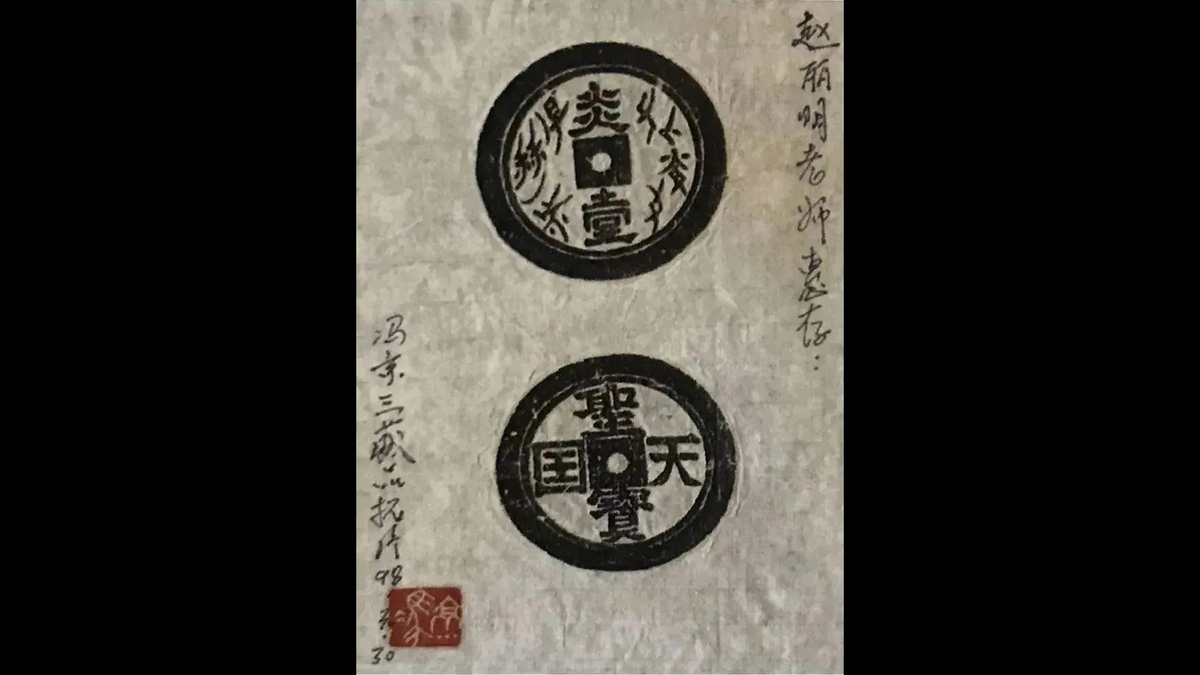
“Rubbings of 'Mother Money' from the Taiping Heavenly Kingdom period (photographed by Zhao Liming)".” Guo, Yulong. “ The Paper.” Edited by Chenyi Xu and Tianye Tao. The Paper CN, March 18, 2024. https://www.thepaper.cn/newsDetail_forward_26708291.
less
Usage
Sacrificial Rites
Women of Jiangyong practiced a faith centered around "Po Wang." Every year on the 10th day of the fifth lunar month, they would visit the Po Wang Temple (also known as Hua Shan Temple) to worship Po Wang. They expressed their hopes and prayers for disaster relief and protection by writing them in Nüshu script on paper or fans.
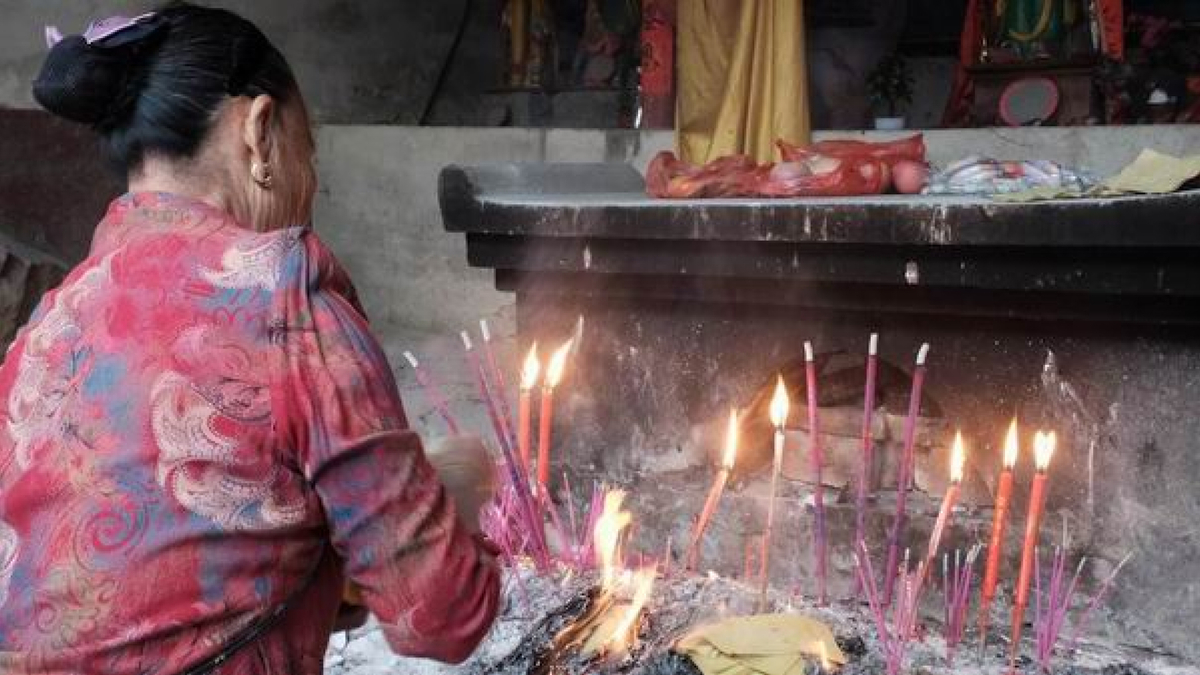
Photo of Sacrificing, Zang Jixian, and Fan Zhu. "The Paper.” https://www.thepaper.cn/newsdetail_forward_ 5187608, December 23, 2019.
Reading and Singing for Entertainment
Women often gathered in groups in a room to do needlework, and while they worked, they typically listened to someone reading or singing from Nüshu script written on paper fans.
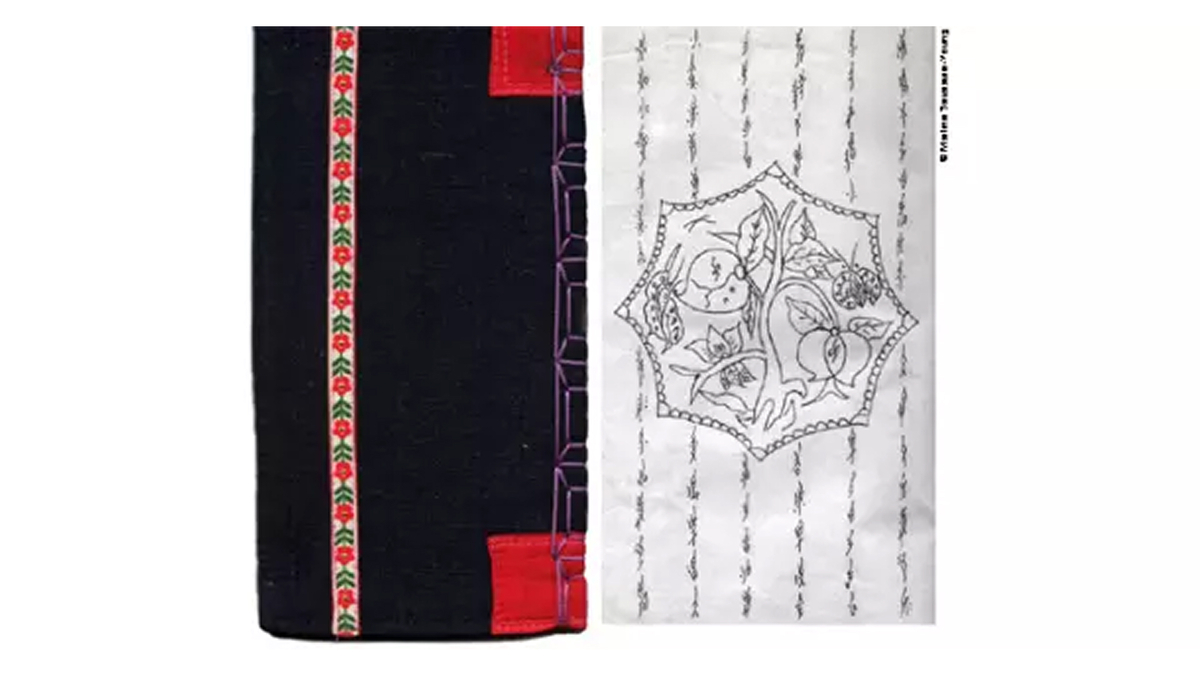
Cover and inside page of a sanzhaoshu or “third day letter” given to a newly married woman three days after her wedding. “Nüshu: From Tears to Sunshine.” The UNESCO Courier, 2018. https://courier.unesco.org/en/articles/nushu-tears-sunshine.
Letter Exchanges Between Females
In Jiangyong, young women traditionally enjoyed forming sworn sisterhoods. Papers and fans written in Nüshu script effectively served as tokens of these sisterhoods. The delivery of letters between the sisters was strictly carried out by women, not men.
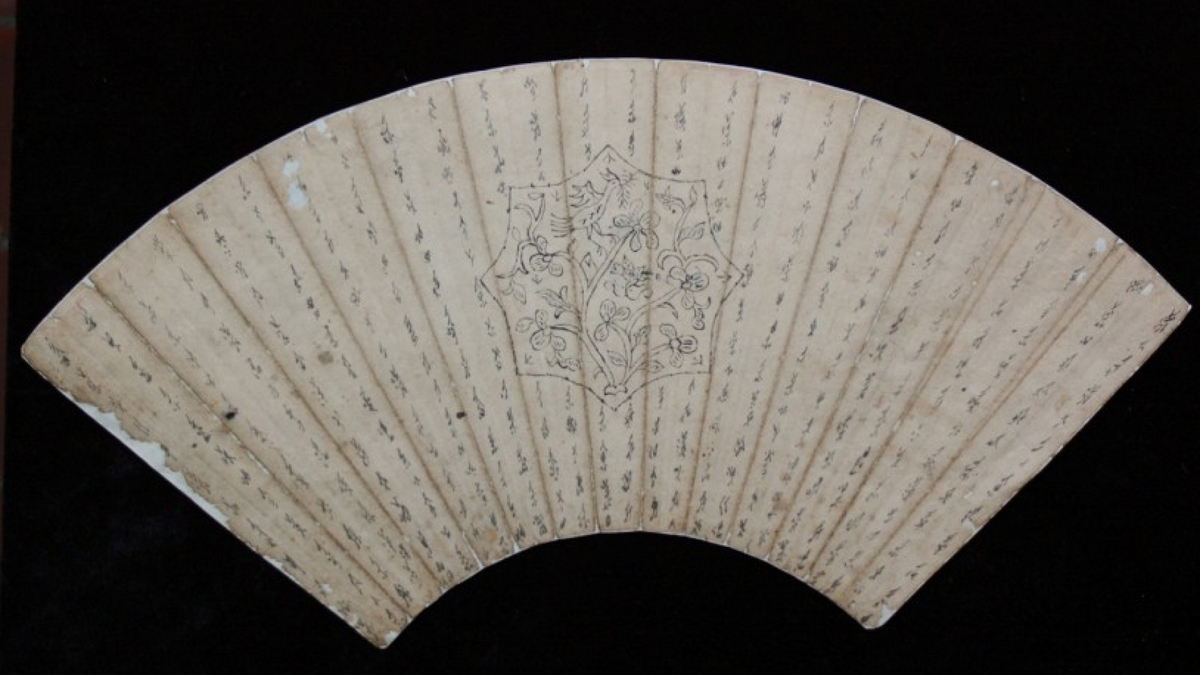
Hunan Museum. “湖南江永女书姊妹结交书《结下好情义》扇面.” Hunan Museum. Accessed March 23, 2024. https://www.hnmuseum.com/zh-
Translating Chinese Characters and Rhymes
As heaven maintains vigor through movements, a gentleman should constantly strive for self-perfection; as earth's condition is receptive devotion, a gentleman should hold the outer world with a broad mind.
Seven-Character Regulated Verse – A Reply to a Friend
By Mao Zedong, 1957
On Nine Peaks Mountain, white clouds drift high,
The Emperor’s daughter rides the wind from the sky.
One branch of spotted bamboo, a thousand teardrops fall,
Ten thousand crimson clouds weave layered robes tall.
Dongting’s waves surge like boundless snow,
Songs from Changdao shake the land below.
I long to dream of vast expanse and glory,
As the hibiscus land basks in morning’s story
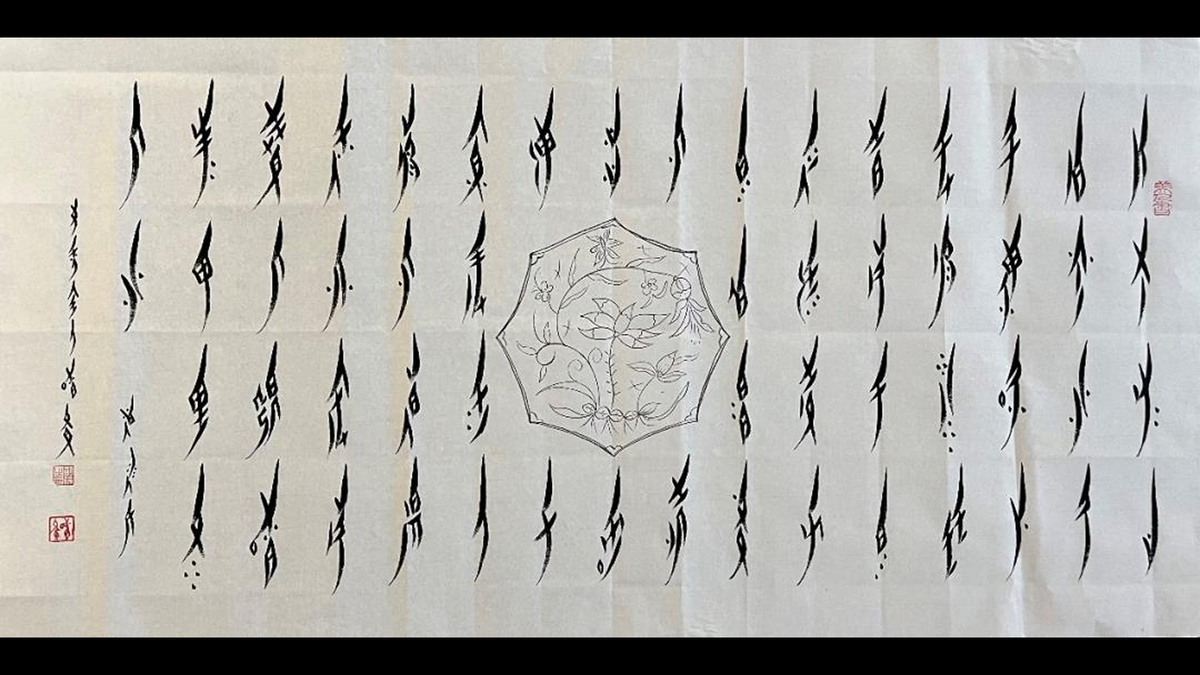
The Paper. “The text that went viral on Xiaohongshu: "Passed down to daughters, not to sons.".” The Paper. Accessed March 23, 2024. https://m.thepaper.cn/kuaibao_
Nüshu is also a way for many women to express their troubles in the form of laments, serving as a personal autobiography.
Knitting and Embroidering
Women often incorporated auspicious idioms into designs using Nüshu script. These designs were woven into ribbons and garments as a way to wish good fortune to the wearer.
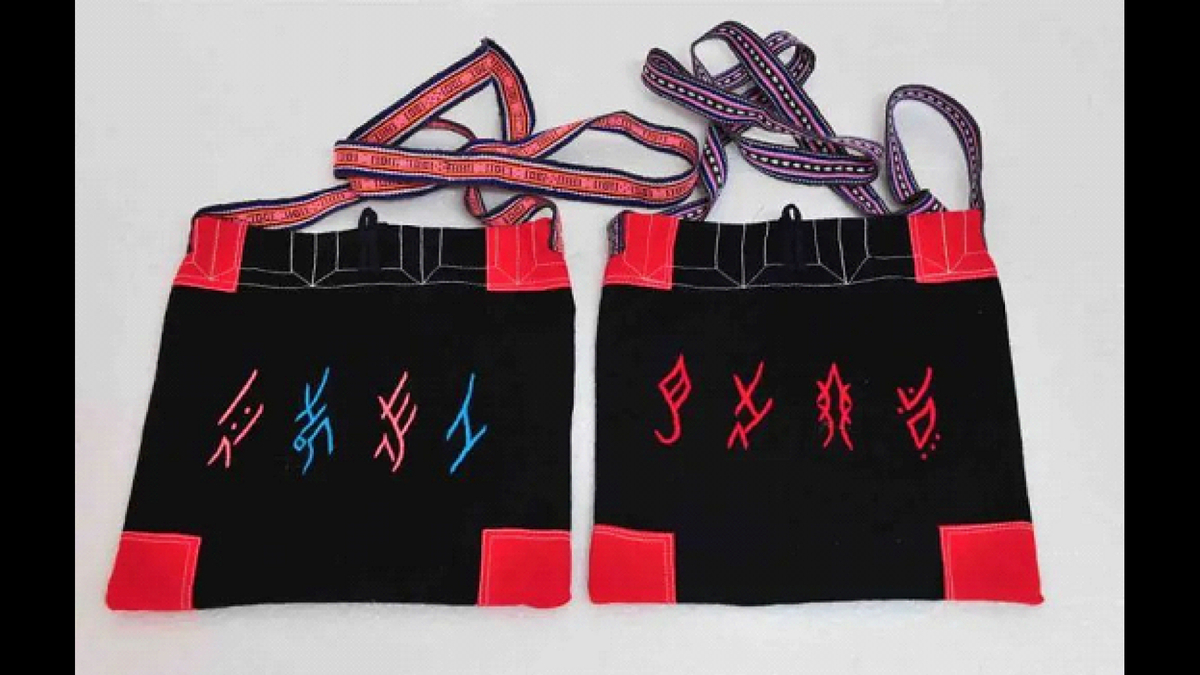
Yiyang City Government. “Nüshu Customs” Yiyang City Government. Accessed March 23, 2024. https://www.yzcity.gov.
less
Inheritor
The main inheritors of Nüshu have experienced a transition from natural inheritors, to semi-natural inheritors, and finally to non-natural inheritors.
Natural Inheritors
Before the establishment of the People's Republic of China, Nüshu was passed down among local women through oral transmission and personal teaching. Even if a woman could not write in Chinese characters or Nüshu script, almost every woman could sing in Nüshu. This tradition highlights the cultural and social significance of Nüshu as a form of communication and expression among women.
Semi-natural Inheritors
The transition from natural inheritors to semi-natural inheritors involved translating Chinese characters into Nüshu and teaching them using the local dialect. Alternatively, in the later stages, natural inheritors might teach Nüshu to non-natural inheritors by taking on apprentices interested in learning the script. This shift in teaching methods marked an important step in preserving Nüshu, expanding its reach beyond familial and close-knit community circles not limited by gender.
Non-natural Inheritors
The transmission of Nüshu has evolved from traditional folk methods to modern forms such as "Song Hall" teachings, films, and documentaries. This shift, driven by experts and government support, has helped broaden awareness and institutionalize the cultural significance of Nüshu.
He Yanxin (b. 1939): The last traditionally trained Nüshu practitioner
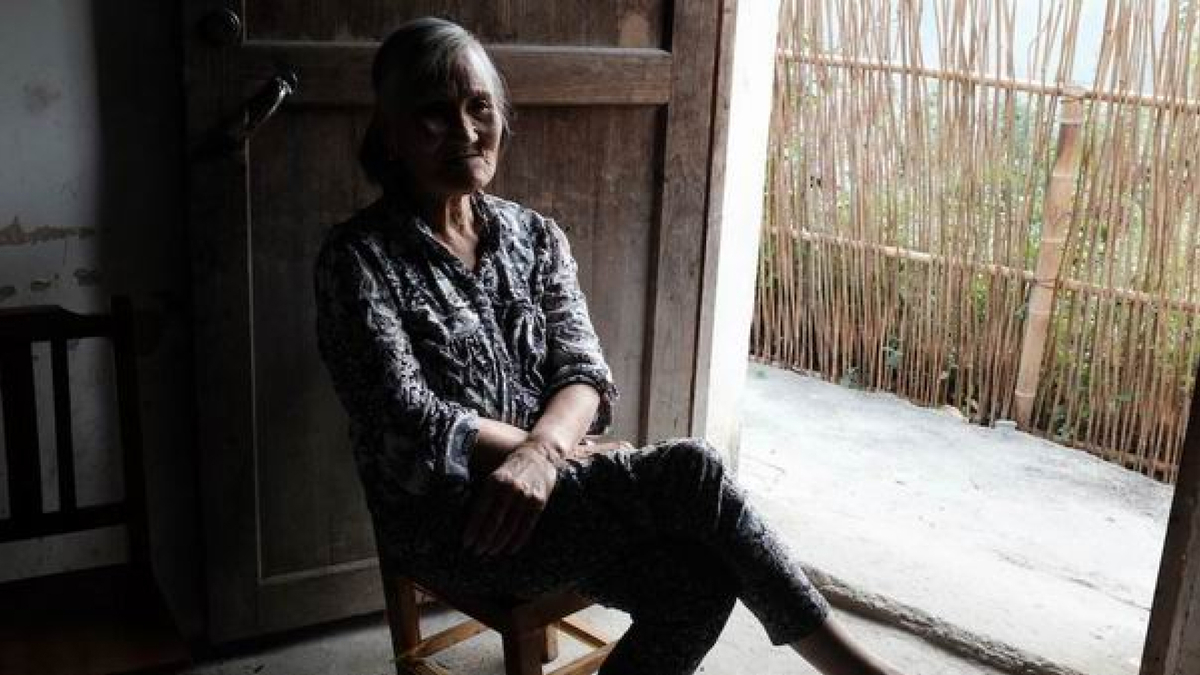
“The photo of He Yanxin”, Zang Jixian, and Fan Zhu. “ The Paper.”, December 23, 2019.https://www.thepaper.cn/newsDetail_forward_5187608.
Hu Xin (b. 1988): The youngest and fourth-generation inheritor of the Jiangyong Nüshu script
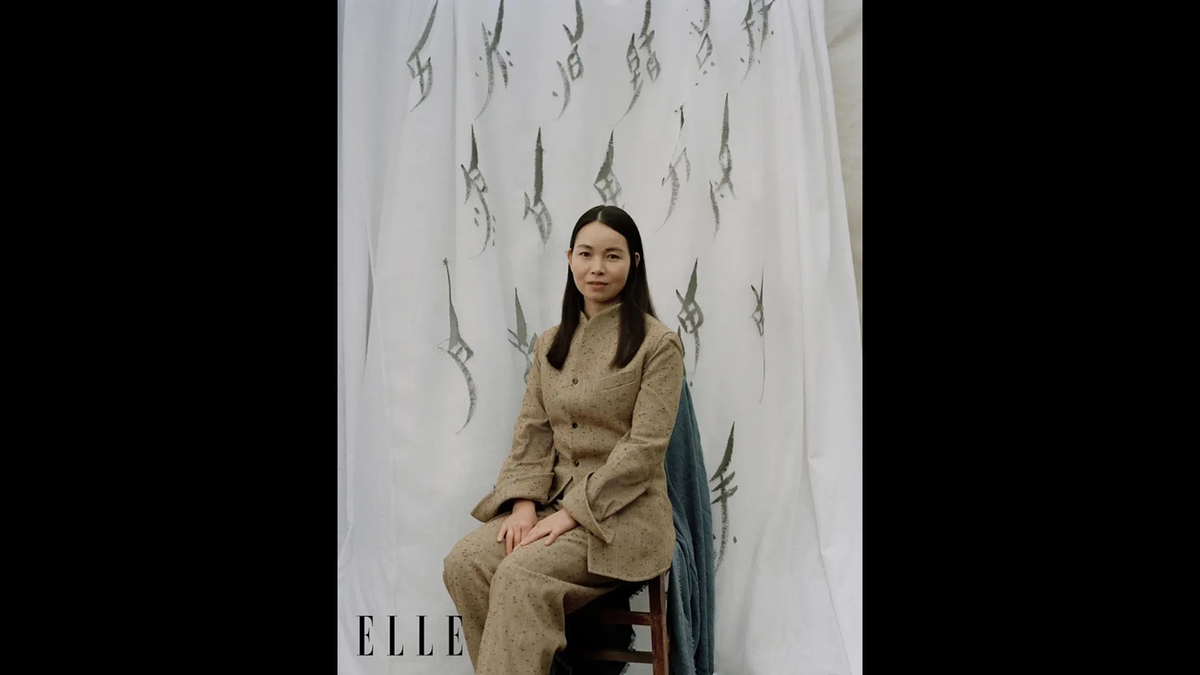
“Hu Xin, Inheritor of Nushu: The Road May Be Narrow, But It Must Go On” Tencent News. Accessed March 23, 2025. https://news.qq.com/rain/a/
less
Additional Resources
Online Nüshu Dictionary
https://
Hidden Letters
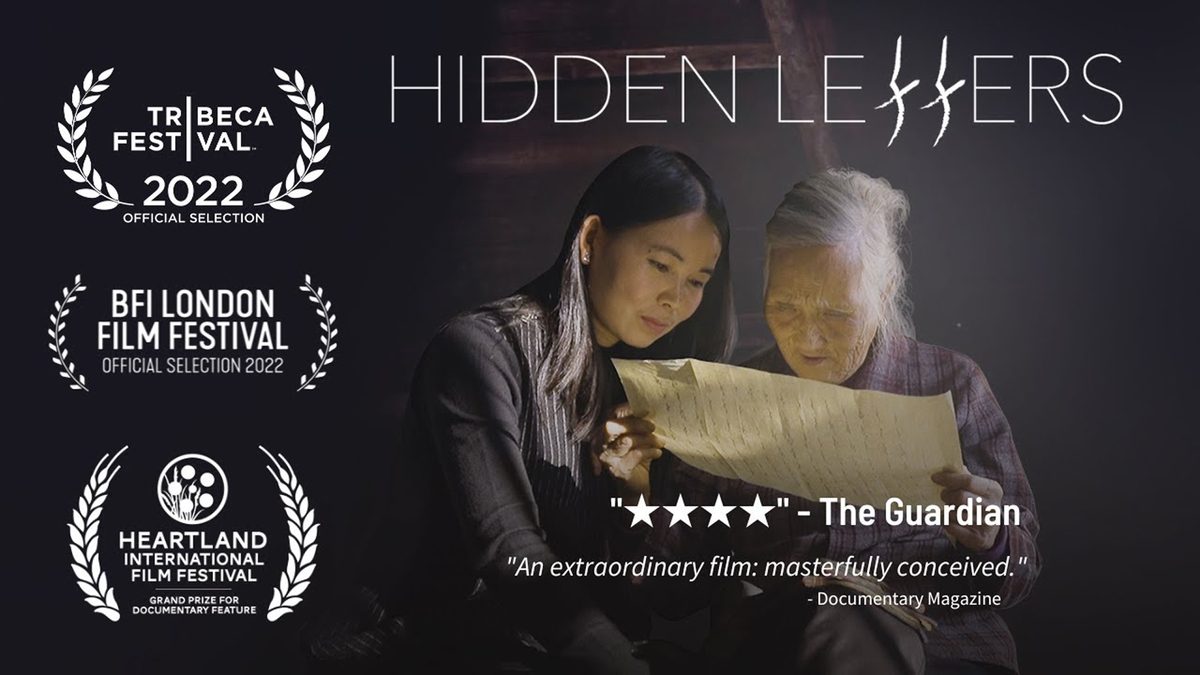
“Hidden Letters.” 2022. Screenshot. Directed by Violet Du Feng and Zhao Qing. USA: Blueberry Pictures, 2022.
less
Bio
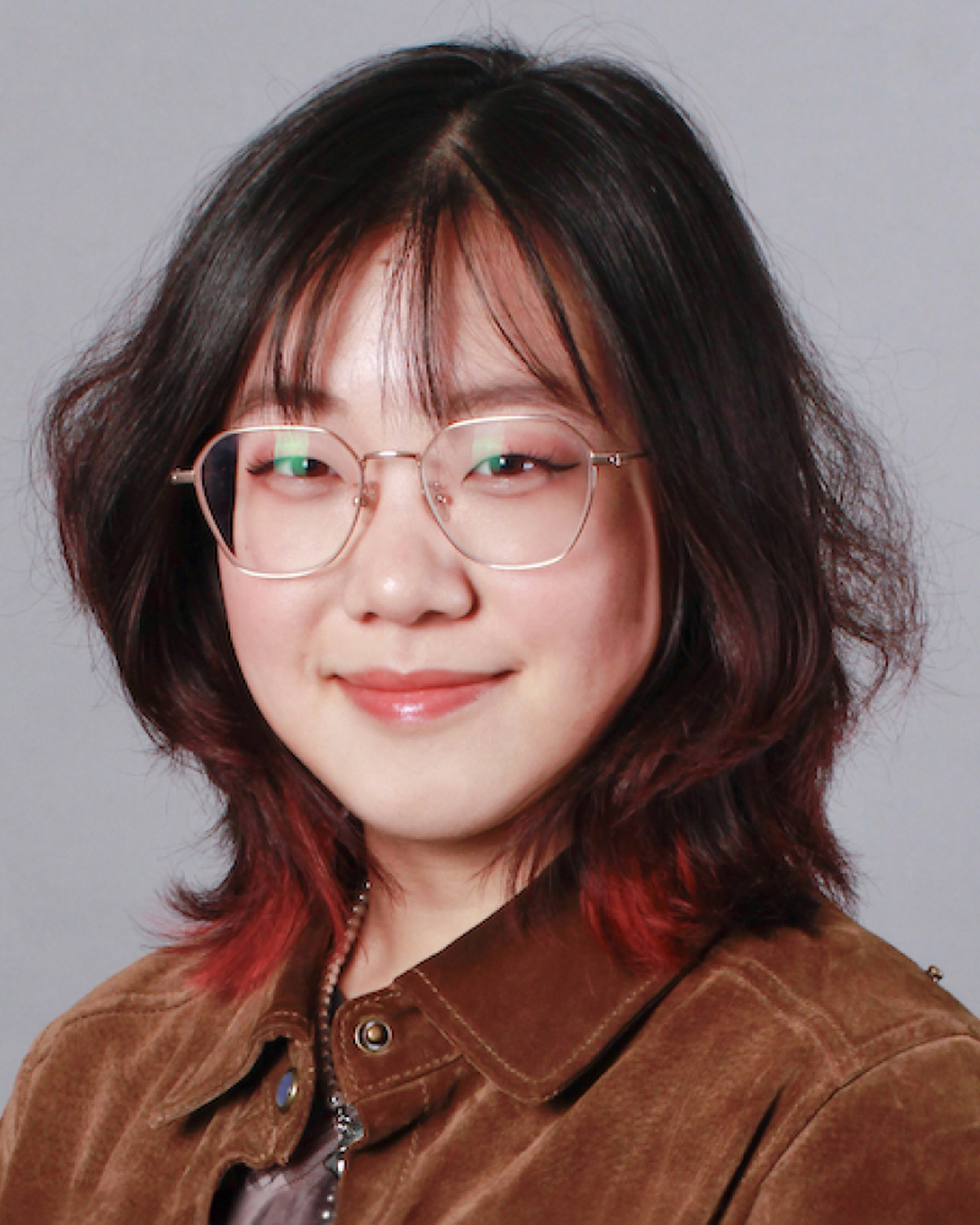
Xiaoxu Han is a Multimedia artist, who focuses on video art, interactive installations, and immersive experiences. She holds a BFA in Design and Technology from Parsons School of Design and is currently pursuing her master's degree at New York University Interactive Telecommunication Program (ITP).
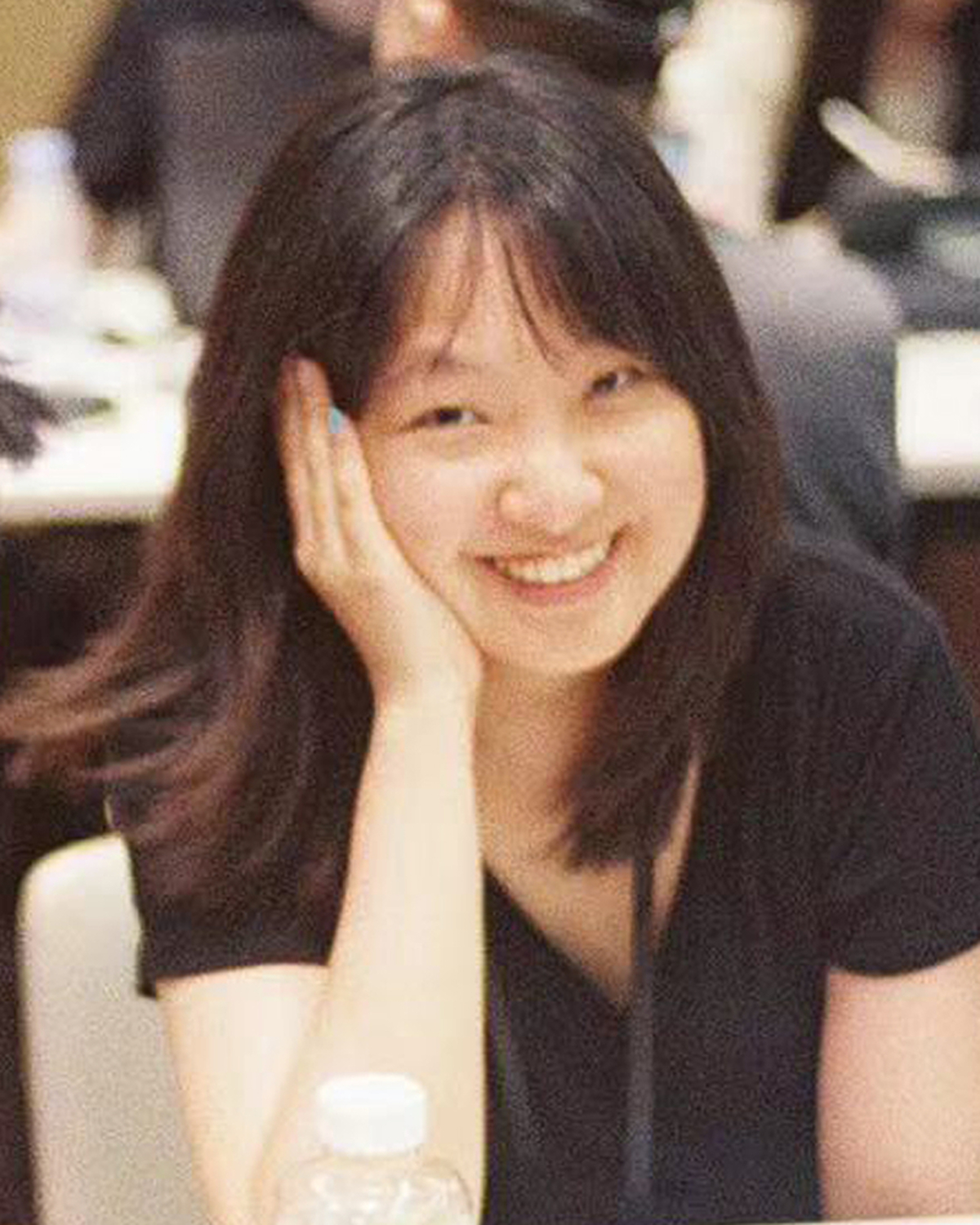
Yiqi Li is a game and interaction designer exploring storytelling and connection through interactive media. She earned her BFA in Design and Technology from Parsons School of Design in 2024 and is currently pursuing her MA in Interactive Media & Games at USC Cinematic Arts. Her work blends thoughtful narratives with engaging experiences, aiming to build meaningful emotional connections.
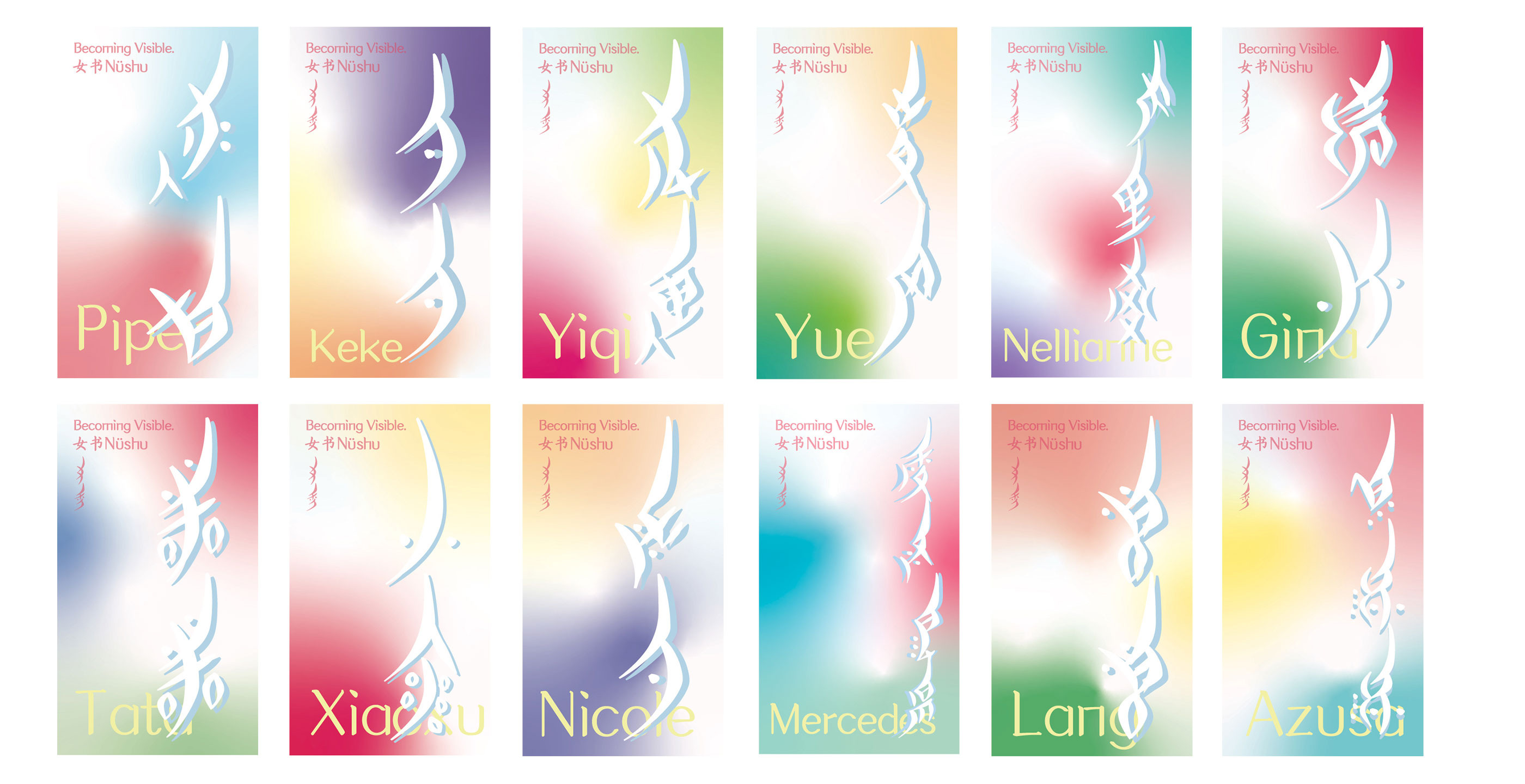
Comment
Your message was sent successfully